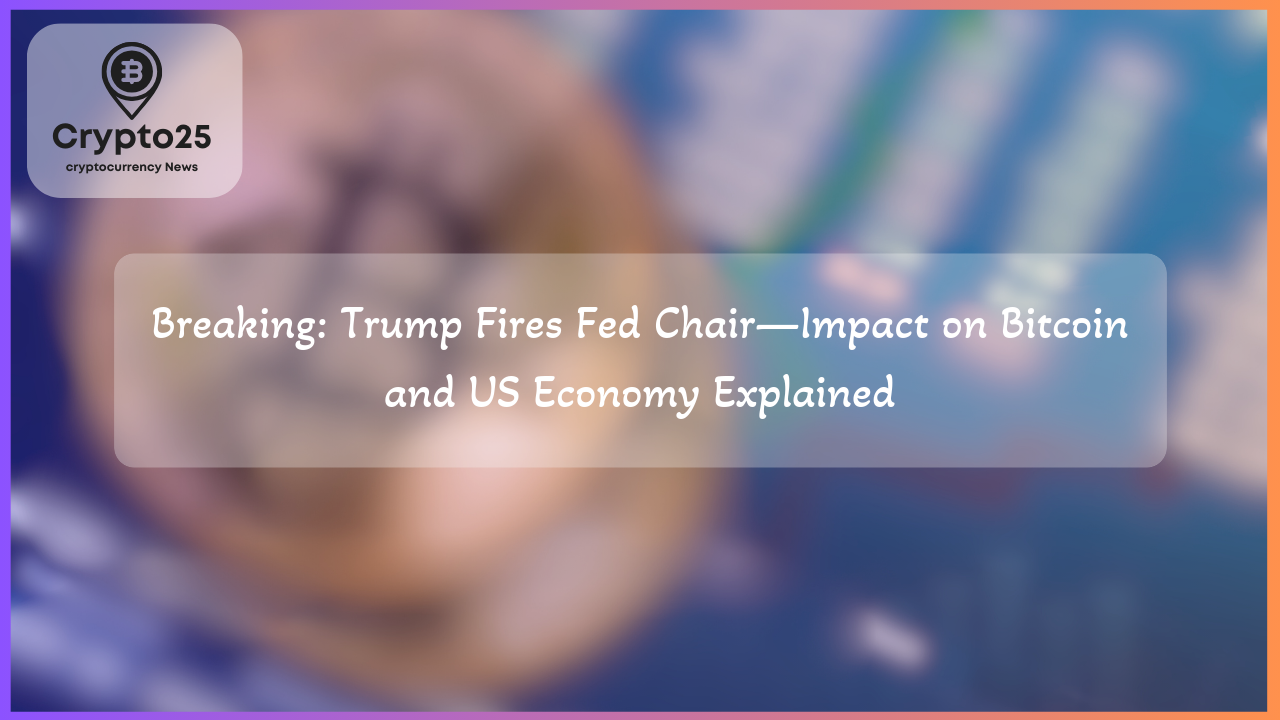
A controversial potential decision from former President Donald Trump to remove Federal Reserve Chair Jerome Powell has sparked significant buzz across financial markets. Analysts argue that such a bold move could destabilize traditional financial systems but simultaneously elevate Bitcoin’s profile as an alternative asset. This development underscores the ongoing interplay between traditional economics and the rising influence of cryptocurrencies like Bitcoin.
### Trump’s Potential Move and Its Impact on Bitcoin
Speculations around the firing of Federal Reserve Chair Jerome Powell suggest that the ripple effects could be profound. Historically, the Federal Reserve has maintained independence from political interference, fostering stability and trust in United States monetary policy. A president firing a Fed chair would set an unprecedented event since the central bank gained functional independence in 1951. Should this happen, traditional financial markets like bonds, stock markets, and even the U.S. dollar may see significant turbulence. However, amidst this potential chaos, Bitcoin adoption could benefit.
Why? Bitcoin operates independently from government influence, serving as a decentralized store of value. Analysts suggest that a disruption to trust in the U.S. financial system could accelerate global demand for Bitcoin as a secure alternative to fiat currency. Bitcoin’s fixed supply and apolitical nature sharply contrast with traditional asset classes that are directly influenced by policy decisions. This divergence positions Bitcoin as a hedge against monetary instability.
### Bitcoin as a Hedge Against Financial Instability
Bitcoin’s narrative as “digital gold” continues to gain traction during increasingly volatile times. Gold has long been a go-to asset in uncertain markets. Similarly, Bitcoin appeals to investors seeking refuge during economic turmoil. Financial strategist Juan Leon of Bitwise notes that undermining U.S. institutional stability—such as firing Powell—would erode confidence in the monetary system. This could spark renewed interest in Bitcoin as an antifragile asset.
Much like gold’s meteoric rise during economic strain, Bitcoin may follow a similar trajectory. Over recent months, macroeconomic tensions, including geopolitical shifts and fluctuating traditional markets, have added to Bitcoin’s allure. However, Leon acknowledges that Bitcoin, like other digital assets, still experiences short-term volatility tied to traditional financial markets. Should a shock like Powell’s dismissal occur, Bitcoin may initially decline alongside traditional markets but recover stronger as market participants pivot toward decentralized assets.
| Title | Details |
|---|---|
| Potential Market Reaction | Anticipated turbulence in bonds, equities, and fiat currencies |
| Bitcoin’s Appeal | Decentralized, independent store of value |
| Market Cap Comparison | Bitcoin: ~$500 Billion, Traditional Assets: $1.2 Trillion+ |
Analysts agree that if markets perceive increased political turnover at the Federal Reserve, Bitcoin’s fixed issuance schedule will offer predictable stability. Unlike fiat systems reliant on economic policies, Bitcoin’s decentralized protocol ensures resistance to manipulation, making it highly sought after in uncertain conditions.
### Broader Implications for Crypto Markets Beyond Bitcoin
While Bitcoin might benefit from heightened skepticism toward government-controlled financial systems, other cryptocurrencies may face uncertainty. Unlike Bitcoin, Ethereum and Solana are more reliant on innovation and institutional acceptance. If U.S. economic stability wanes due to drastic political moves like Powell’s firing, altcoins could face negative repercussions due to regulatory uncertainties. Their dependence on evolving policies could lead to investor caution, hampering broader adoption.
Matthew Sigel of VanEck highlights that confidence-shaking events like these are more commonly seen in emerging markets, where economic systems are often less stable. If the U.S. were to exhibit similarly unpredictable traits, it could disrupt established global financial norms. While that might push Bitcoin into the spotlight, altcoins tied to emerging technologies could face prolonged hesitation as investors assess new risks.
In conclusion, Bitcoin’s role as a decentralized and apolitical asset could make it an attractive option in scenarios of economic instability. However, the same cannot necessarily be said for the wider cryptocurrency market, which may grapple with greater regulatory and market hesitations. Whether Trump will actually follow through on removing Powell remains speculative. Still, this uncertainty alone underscores the potential for Bitcoin to emerge as a robust financial alternative amidst political and economic volatility.
